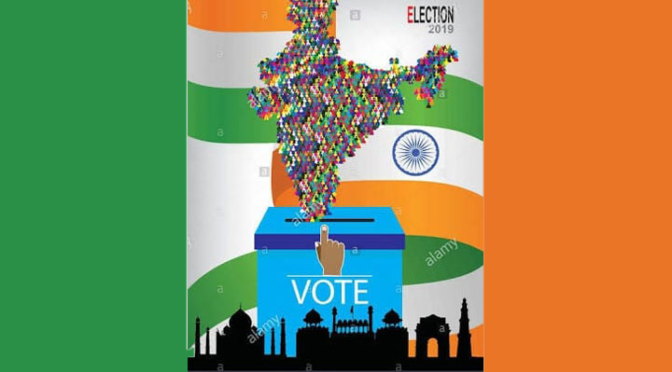Democracy as ‘Soft Power”
Posted on : June 2, 2019Author : AGA Admin

As the world’s largest democracy India has been variously defined as the model of soft power or a country that makes remarkably insignificant use of it. While it’s rich culture and democracy are in contrast to global authoritarian powers and there is often focus on India’s soft power potential, India’s absence from The Soft Power 30 Index means that traditionally it has not benefited from positive associations or investments in cultural diplomacy.
A strong moral streak has been the hallmark of India’s external engagements helped in part by its self-perception as a postcolonial democracy. India’s principled boycott of South Africa for its racist Apartheid policies won it respect from post-colonial states across Africa. In the 1990’s, India was brought into Asian institutions by the Association of Southeast Asian Nations (ASEAN), which saw the appeal of its growing economy and democratic values.
However, India was never taken in by the Western proposition that she must actively ‘promote’ democracy worldwide. There was recognition that the greatest Indian contribution was in setting an example and demonstrating that democracy is the best form of governance for developing nations.
The shift in India’s foreign policy discourse with the focus of establishing itself as a regional power has meant a renewed emphasis on soft power. New Delhi’s heightened focus on its immediate neighbourhood has been firmly established by the invitation to leaders of all the South Asian Association for Regional Cooperation (SAARC) countries to the swearing in ceremony of Prime Minister Modi in 2014 and the more recent invitation to BIMSTEC
countries for the ceremony in 2019. There has also been a strategic shift from Look East Policy to Act East Policy.
One of India’s strategic advantages in South Asia has been its cultural proximity with the regional consensus in South Asia and even beyond to Southeast Asia. The political process of democracy has often been considered a strong part of the Indian cultural ethos. The idea of inclusivity has made a significant impact on its perception by the smaller countries in South Asia. Pakistan for instance has a history of problematic implementation of democracy with frequent attempts of takeover of governance by the military. In recent years, the constitutional crisis in Nepal, the democratic problems of Maldives and Sri Lanka and the problematic electoral process of Bangladesh, have cemented India’s position as the only country functioning on credible democratic ethos.
Critics have however pointed out that not enough has been done from New Delhi’s end to propagate democracy as an essential part of itself in order to define its assertion of dominance in the region. This has also been backed up by poor perception of the discourse of democracy in the broader understanding of international relations and foreign policy. This can be substantiated by the fact that there is a lot of ambiguity in recognizing democracy as an abstract concept as well as a political process. Democracy has largely been understood as an issue of national development and has been marginalized from the domain of foreign policy.
China’s rise can be an opportune moment for New Delhi’s policy makers to take cognizance of the relevance of democracy. Democratic value system and ethos can be highlighted in the larger canopy of India’s soft power. Specifically focusing on South Asia countries, China’s Belt and Road Initiative and its debt-trap diplomacy has rendered most of the smaller countries in an economic crisis. This can potentially be India’s chance to offer a strategic alternative and prompt the relevance of democracy and its subsequent positive impacts. It is time that Indian policy makers should ponder over including the discourse of democracy in foreign policy.
Sayantan Haldar
Intern, AGA
02-05-2019
The views, thoughts and opinions expressed in the text belong solely to the author, in his personal capacity. It does not reflect the opinion of the organisation.





Leave a Reply